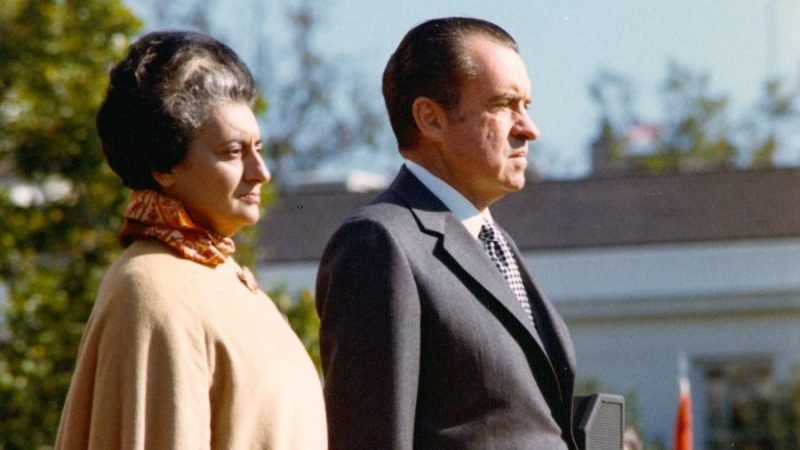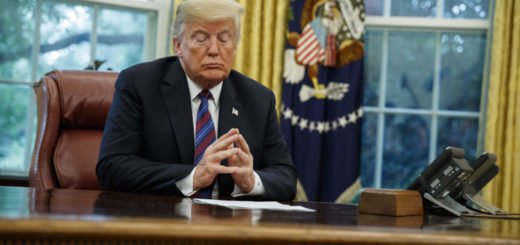Richard Nixon and his racist remarks; what does India-US history have to say?

The controversy wobbling around Richard Nixon and his Secretary of State Henry Kissinger had always intrigued various historical researchers and political scientists around the world. But one important chapter in their office term was their contentious relationship with India especially during the time when Indira Gandhi was the Prime Minister of India. A new angle of deep-rooted racism and racial prejudices of the duo has emerged with the latest batch of audio recordings of meetings and informal conversations in the White House that took place in 1971 were declassified. The recordings strictly direct our attention to the lesser-known bigoted views of the two men and their team and the utter disrespectful terminology used to address Indians, especially Indian women as undesirable and sexless. The former President also went on to say that Indians are just “scavengers” who are experts in sucking up to people in key positions around the world. These remarks have spurred a serious discussion on the nature and inherent bias of various populist political figures who have a dark side hidden to their glamorous legacy.

India-US Relations under Nixon
India-US relations under President Nixon was comparably one of the lowest points in their bilateral history with frequent falling back on words, open criticisms, prejudices and mistrust on multiple levels. This was the time in the late 1960s and early 1070s which was considered the peak of the Cold War era. Nixon had consistently chosen policies proving his pro-Pakistani stance in an attempt to warm up with China, hence, leaving India out of its alliance pool in the process. This was the time in 1971 that India and Pakistan were at the verge of war and India was desperately looking to make strategic alliances with various countries. Deteriorating relations with the US pushed the Indira Gandhi Administration to seek assistance from the Soviets further to the displeasure of the United States. Moreover, India actively supported the refugee movements from the newly created Bangladesh into India and not agree to a status quo treaty with Pakistan. The Bangladeshi Liberation War and the Nixon administration favouring Pakistan were two highlights of the nature of strained relations between the US and India during the Cold War. Being envious of India’s courage in standing up to help Bangladesh, the Nixon administration permanently hauled the economic assistance given by the United States to India.
Nixon-Indira and the inherent Racism
Classified information about the life of Indira Gandhi states that Indira being one the very few female leaders who was popular that time, President Nixon was devastated after losing out in the Indo-Pakistani war in 1971 to India. Indira, having managed to defeat American Fleets with the military assistance of the Soviet Union scratched the deepest insecurities of the former President. This led to a personal as well as a political hatred on the part of Nixon towards Indians and Indira Gandhi. In the initial months of becoming the President, Nixon had promised India substantial food assistance as India had suffered severe droughts and was short on food supply but later on, retracted on his words. This led to Indira cosying up to the Soviets and signing the “Treaty of Peace, Cooperation and Friendship”, clearly not caring about the implications of this on the relations with the United States. During the Indira Gandhi rule, history has it that Nixon’s visit to India in 1969 was restrained and low-key. This irked the President and was the start of his racial bias towards Indians. According to the former National Security Adviser, Kissinger, Indira Gandhi intimidated Nixon with her boldness and he immediately inherited a grudge against Indira. Even when Indira visited the United States to participate in peace talks before the war, Nixon and Indira had highly hostile talks with almost no progress. Kissinger also admitted that the Presidents conversations post the talks were “not always printable.” The confidence of the first female Indian Prime Minister in standing up to the US one on one hurt Nixon’s ego.

Implications of such remarks
Foreign policy scientists who have studied such classified files and examined the recordings point out that most of the times, such biases deeply transcend into the foreign policies of the respective governments and their treatment towards the other countries. Various declassifications are an account of the deep-ended anti-Semitic stand of President Nixon and his actions about the same. He openly blamed the presence of Jews in America as the root cause of problems like unemployment and rising crime levels. Nixon’s generalizations about Indians and Indian women in particular, were also based on a similar note. He hated Indians because he loathed Indira Gandhi; she wound him up to a point where he became incoherent with rage. This was because of India’s tilt towards the Soviet Union and hostility towards Pakistan, which somewhere got in the way of Nixon’s strategic objectives in Asia. Not only about India, but similar remarks about their own allies, Pakistanis were also made by the President. And what came shocking was the complacency of his right-hand man, Kissinger who simply flattered the President by agreeing to every problematic thing he had to say. Such a personal bias of people in key positions inadvertently reflects in the political and diplomatic choices that they make and a hence, a similar trend with President Trump is also a sufficient witness to the same with a high probability that his personal conversations would also be unprintable.



















